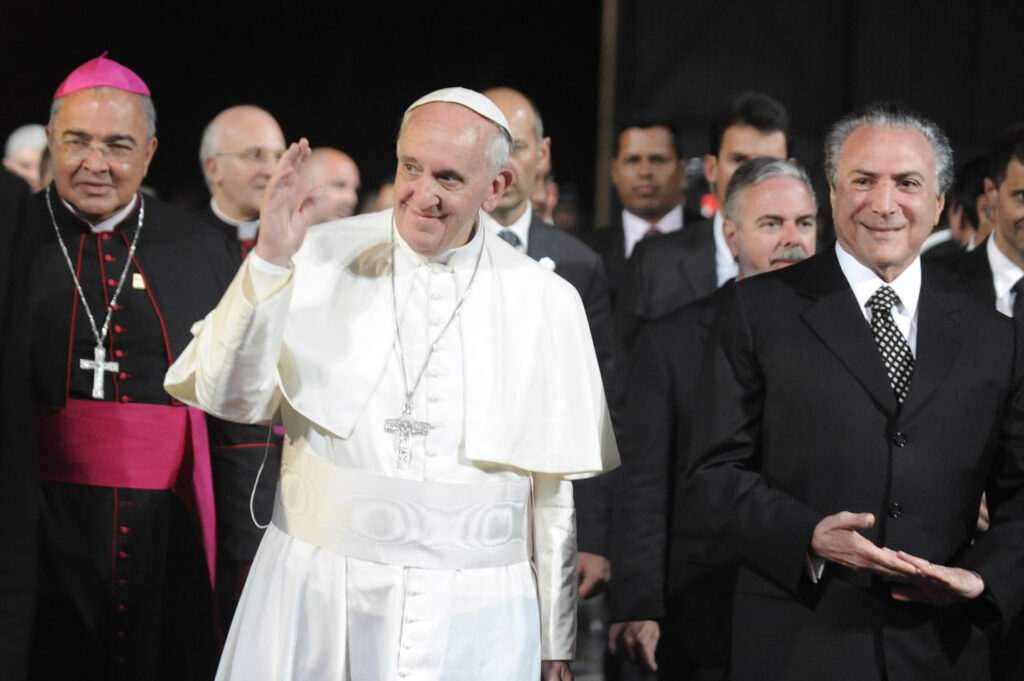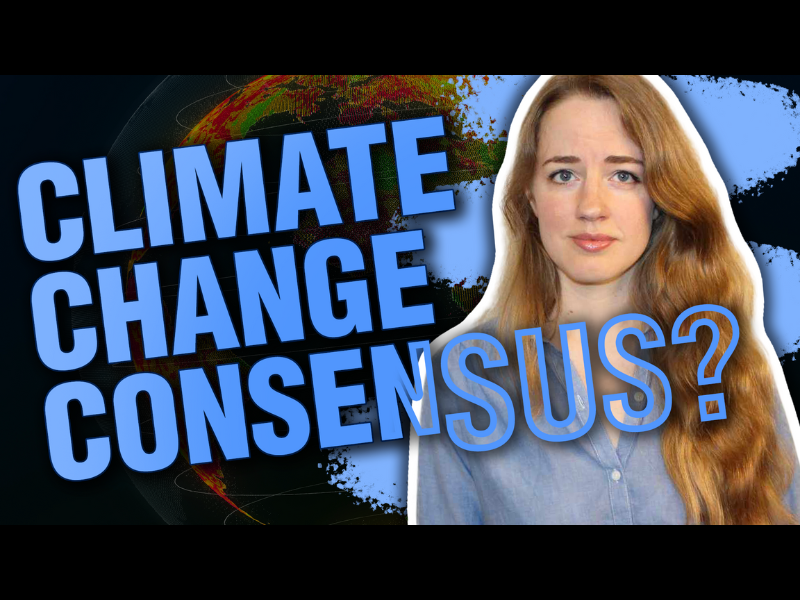A recent teaching document issued by Pope Francis, Laudate Deum (Praise God) has been aggressively promoted by the media for its focus on climate change, especially for the Pope’s criticism of the western world’s heavier energy use and alleged contributions to global warming. Pope Francis says extreme weather is worsening, but respectfully, the Holy Father is wrong.
He is also mistaken in his solutions, namely an energy transition, global deprioritization of economic growth, and the implied need to sacrifice the western standard of living. These will not only fail to stop climate change, but will lead to further human and ecological suffering. He’s not wrong about everything though, so read on.
Pope Francis has always emphasized humans’ responsibility to the environment; the name he took — Francis — is in reference to Saint Francis of Assisi, who was known for having a special connection to animals. It is no surprise that he has published two encyclicals on this topic, which to be clear, is something that concerns the religious and nonreligious alike. Scientific matters are also moral matters, especially when possible negative effects are widespread, like when Pope John Paul II addressed nuclear war.
Laudate Deum is the second environment-focused encyclical issued by Pope Francis, and compared to the first, Laudato Si, has its primary focus on the issue of climate change. It also was written in much stronger language, highlighting the lack of “progress” in advancing the goals of the numerous U.N. Intergovernmental Panel on Climate Change (IPCC) conferences.
Pope Francis is incorrect that extreme weather is getting worse, and he’s wrong about other alleged problems caused by climate change, which would require an entire book to debunk individually.
While there may be the appearance of more frequent weather disasters around the globe, this is actually an artifact of media coverage and focus, and our ability to instantly obtain news from everywhere in the world 24 hours a day.
The IPCC itself has essentially come to the same conclusion of a recent study, which found that “on the basis of observational data, the climate crisis that, according to many sources, we are experiencing today, is not evident yet.” The IPCC says there is low scientific confidence in the existence of any visible trends in the form of most weather extremes that alarmists frequently cite as evidence.
Even better news is that human casualties due to climate-related disasters like floods and extreme temperatures have been declining worldwide.
The reason why these deaths are declining, of course, is because of improvements and expanded access to emergency services, infrastructure, electricity, indoor climate control, and other developments — all of which come thanks to our continued use of fossil fuels.
This brings us to the next point of concern, which is Pope Francis’ criticisms of the Western lifestyle and heavy energy and fossil fuel use.
One part of the encyclical makes an interesting point, that industrial projects are sometimes undertaken only after local residents are fed marketing ploys, promises, and “false information.” People are promised benefits:
…Yet in reality there does not seem to be any true interest in the future of these people, since they are not clearly told that the project will result in the clearing of their lands, a decline in the quality of their lives, a desolate and less habitable landscape lacking in life, the joy of community and hope for the future; in addition to the global damage that eventually compromises many other people as well.
This scenario is terrible, but applies to the peddlers of so-called “green energy” as much as anything else. An “energy transition” will require tons of land to be cleared for growing biofuel feedstock, placing solar panels and battery storage installations, and wind power plants. Renewables have larger environmental footprints than traditional energy sources.
The human cost is expansive as well; fossil fuels have provided the transportation fuel as well as materials for infrastructure that make modern life possible, and are contributing to lifting the world’s poor from poverty. Green energy, on the other hand, greatly expands the need for rare earth minerals and materials like cobalt, the mining of which famously involves the abuse of children and slave labor.
The international green agenda has so far resulted in more poverty and in the case of Sri Lanka, famine and violence.
Two things that Pope Francis got right in Laudate Deum are that human beings should be conscientious in our use of our natural resources that God made for our use, to care for Creation, and that human beings and our activities are not an inherent danger to the planet. Population control, the Pope argues, is an evil, and not a solution. This is correct, and it is notable that the media did not report on this part of the encyclical.
If climate change was in fact catastrophic, or endangering the planet and human life, the Pope’s concerns would be warranted. Fortunately, data do not back up those fears.
So, what are Catholics to take from this latest encyclical?
Well, I also had an initial despairing reaction to the news coverage of its release, but first I recommend taking the time to actually read the entire document. You will find that it is not as extreme as the political Left presents it as, nor as balanced as the topic of climate change and resource use merits. Keep in mind that the Pope cannot teach authoritatively on matters of science, only doctrine, the Church explains that these kinds of “prudential” documents are not immune from errors, even serious scientific and economic ones.
The moral questions that are addressed by Pope Francis do merit consideration. Pollution and litter are real issues, along with unnecessary deforestation, overfishing, and poaching. Poverty is likewise something Christians are called to be concerned about. Fortunately, both of those issues can be aided by helping impoverished nations unlock their energy industries and invest in development. People are more concerned with conservation when they are not so worried about putting food on the table.
Someone much smarter and more educated in Church history reminded me recently that “the Church thinks in centuries,” and indeed, a hundred years from now, after decades of satellite data, the world will likely look back on Laudate Deum as a well-intentioned, albeit scientifically and economically misinformed, document reflective of the mainstream attitudes of today.
Photo by Tania Rego/ABr. Creative Commons Attribution 3.0.





